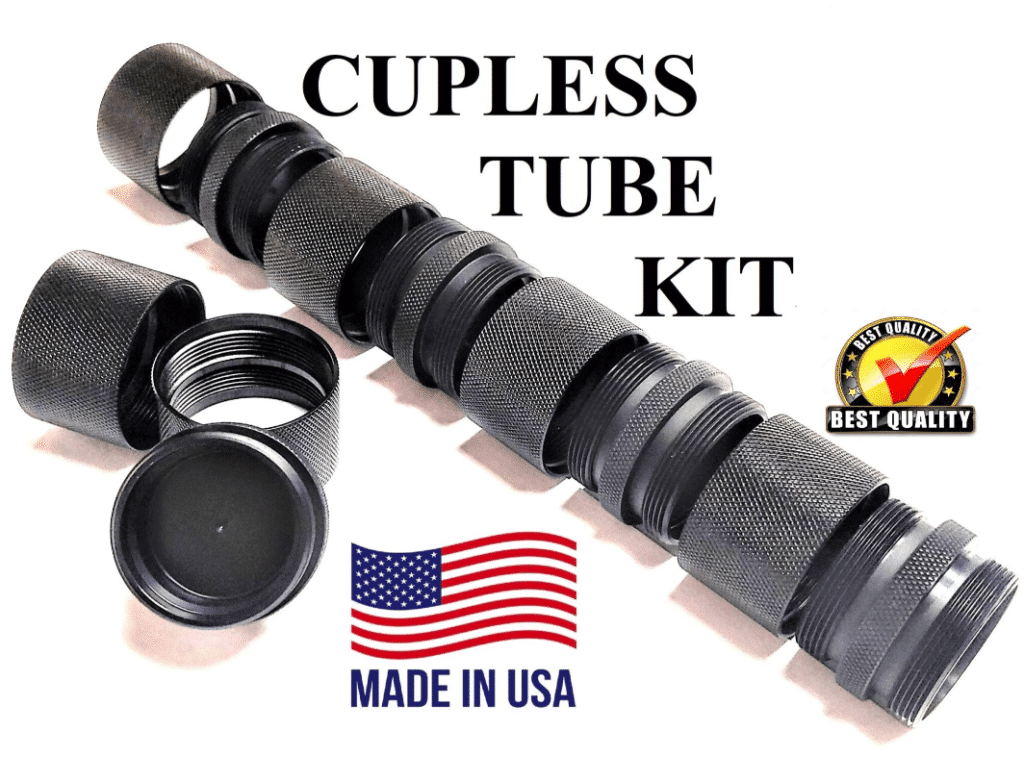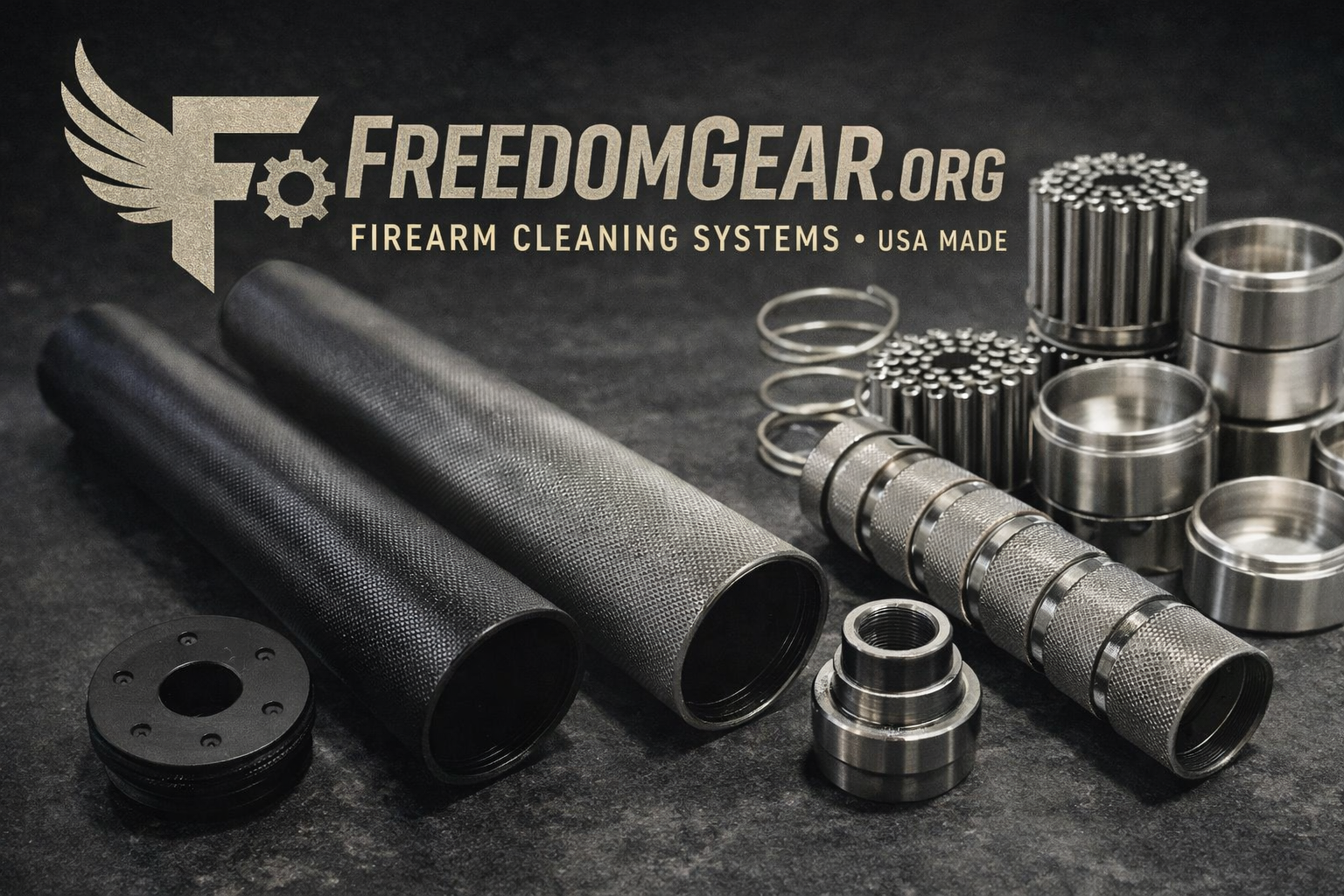
Solvent traps have become a topic of interest and debate among firearm enthusiasts and legal authorities alike. These devices are marketed primarily as tools for cleaning firearms, designed to catch and contain cleaning solvents during the maintenance process. However, the potential for their misuse has led to significant legal scrutiny. This article explores the legal landscape surrounding solvent traps, the risks involved in their purchase, and the steps you can take to ensure that you are complying with the law.
What is a Solvent Trap?
A solvent trap is a device that attaches to the muzzle of a firearm. Its intended purpose is to catch and trap the solvent used when cleaning the gun. This helps to prevent the solvent from spilling onto surfaces or the ground, making the cleaning process cleaner and more environmentally friendly. Solvent traps typically consist of a cylindrical tube and end caps, some of which may be threaded to fit onto a firearm barrel.
Legal Considerations
The primary legal concern with solvent traps is their potential modification into illegal firearm suppressors. A suppressor, or silencer, reduces the noise produced by firing a gun, and in many jurisdictions, owning one without proper authorization is illegal. The Bureau of Alcohol, Tobacco, Firearms and Explosives (ATF) closely monitors devices that could be converted into suppressors.
ATF Regulations
The ATF has specific guidelines regarding what constitutes a suppressor and the legal requirements for owning one. Under the National Firearms Act (NFA), any device designed to reduce the noise of a firearm is classified as a suppressor and requires registration and a tax stamp to own legally. This includes devices that could be readily converted into suppressors.
Solvent traps, especially those with threaded ends or baffles, can be seen as components that could easily be modified into a suppressor. Therefore, purchasing, possessing, or modifying a solvent trap without following the proper legal procedures can lead to severe penalties, including fines and imprisonment.
Risks of Purchasing Solvent Traps
- Legal Ambiguity: Even though solvent traps are marketed for firearm cleaning, their design can bring them dangerously close to the definition of a suppressor. This legal gray area can result in unintentional violations of federal law.
- Intent and Modification: The intent behind purchasing a solvent trap and any subsequent modifications play a crucial role in its legality. If a solvent trap is modified in any way that suggests an attempt to create a suppressor, it becomes illegal.
- Vendor Legitimacy: The legitimacy and reputation of the vendor from which you purchase a solvent trap are also important. Some vendors may not adhere to legal guidelines, putting buyers at risk.
How to Purchase Solvent Traps Legally
If you decide to purchase a solvent trap, it is essential to do so with full awareness of the legal requirements and potential risks. Here are some steps to help ensure you stay within the bounds of the law:
- Research Thoroughly: Understand the laws and regulations surrounding solvent traps in your jurisdiction. Federal, state, and local laws may all have specific stipulations.
- Purchase from Reputable Vendors: Buy solvent traps from reputable vendors who comply with legal standards and provide clear information about the intended use of their products.
- Avoid Modifications: Do not modify a solvent trap in any way that could suggest an intent to create a suppressor. This includes drilling holes, adding baffles, or any other alterations.
- Consult Legal Experts: If you are unsure about the legality of purchasing or owning a solvent trap, consult a legal expert who specializes in firearms law. They can provide guidance tailored to your specific situation.
- Follow ATF Guidelines: Adhere to all ATF guidelines and regulations regarding firearms accessories. If in doubt, seek clarification directly from the ATF.
Alternatives to Solvent Traps
Given the legal risks associated with solvent traps, you might consider alternative methods for cleaning your firearms that do not carry the same potential for legal complications.
- Traditional Cleaning Kits: Use traditional firearm cleaning kits designed explicitly for the task. These kits include rods, brushes, patches, and solvent containers that do not resemble or function as suppressor components.
- Professional Cleaning Services: Engage professional gunsmiths or firearm maintenance services. These professionals have the tools and expertise to clean your firearms safely and legally.
- Safe Solvent Disposal: Use cleaning mats and solvent containers that prevent spills without resembling suppressor components. There are various products available that can catch and contain solvents without raising legal concerns.
Purchasing solvent traps safely and legally requires a thorough understanding of the legal landscape and a cautious approach to ensure compliance with federal and state regulations. While solvent traps can be useful tools for firearm maintenance, their potential for misuse as suppressors makes them a legally sensitive purchase. By following the guidelines outlined in this article—conducting thorough research, purchasing from reputable vendors, avoiding modifications, consulting legal experts, and adhering to ATF regulations—you can minimize legal risks and responsibly enjoy your firearm maintenance activities.
Always remember that the intent behind your purchase and the actions you take afterward are crucial in determining the legality of owning a solvent trap. When in doubt, prioritize safety and legality to avoid serious legal repercussions.
